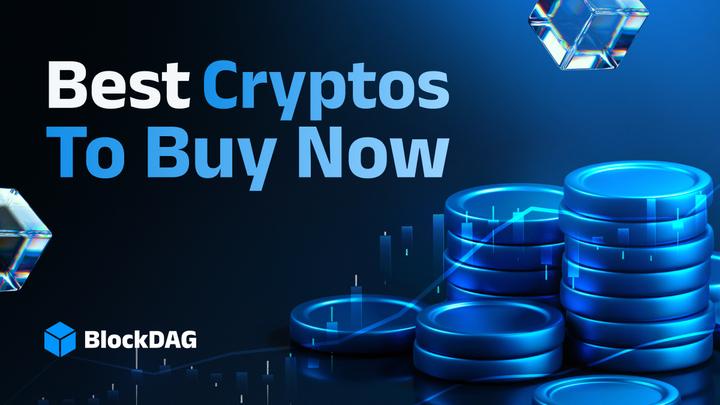Hut 8, a mining company, launched a $1 billion ATM financing program to fund high-performance computing and AI data centers.
2025/08/24 16:23
PANews reported on August 24th that Bitcoin mining company Hut 8 Corp. has updated its At-the-Market (ATM) stock offering program, allowing the company to raise up to $1 billion through stock sales. The new program replaces Hut 8's previous $500 million plan, launched in December 2024. The new funds will be used to expand its high-performance computing and AI data centers.
Məsuliyyətdən İmtina: Bu saytda yenidən yayımlanan məqalələr ictimai platformalardan götürülmüşdür və yalnız məlumat xarakteri daşıyır. MEXC-in baxışlarını əks etdirməyə bilər. Bütün hüquqlar orijinal müəlliflərə məxsusdur. Hər hansı bir məzmunun üçüncü tərəfin hüquqlarını pozduğunu düşünürsünüzsə, zəhmət olmasa, service@support.mexc.com ilə əlaqə saxlayaraq silinməsini tələb edin. MEXC məzmunun dəqiqliyinə, tamlığına və ya vaxtında yenilənməsinə dair heç bir zəmanət vermir və təqdim olunan məlumatlar əsasında görülən hərəkətlərə görə məsuliyyət daşımır. Məzmun maliyyə, hüquqi və ya digər peşəkar məsləhət xarakteri daşımır və MEXC tərəfindən tövsiyə və ya təsdiq kimi qəbul edilməməlidir.
Məqaləni Paylaşın
Bunları da Bəyənə Bilərsiniz

The Future Of Crypto In Asia-Middle East
The post The Future Of Crypto In Asia-Middle East appeared on BitcoinEthereumNews.com. Opinion by: Dipendra Jain, co-founder of TCX Regulation has become the baseline for crypto. From the United States’ regulatory enforcement to Dubai’s comprehensive crypto rulebook and India’s renewed debate on formalizing Bitcoin reserves, governments are rewriting the rules of digital finance. As listed institutions, retailers and social networks weigh in on digital asset rails, stablecoins and yield mechanisms, the real story is no longer what’s next, but who is building what comes next. Speculation once drove adoption, but structured compliance catalyzes scale across the Asia-Middle East corridor. Hubs like the United Arab Emirates and India represent the treatment of regulation as the backbone of innovation. The UAE is pushing a unified virtual asset service providers (VASP) framework to accelerate global crypto ambitions. At the same time, India is opening the door for offshore crypto exchanges to return, with approvals now subject to the review of the Financial Intelligence Unit (FIU). As regulatory frameworks formalize, platforms must align with new taxation, data governance and licensing rules to access expanding markets without friction. The global center of gravity is tilting eastward, and the question is: Who will master the age of “permissioned scale,” where sustainable growth comes from thriving within regulation, not skirting them? Jurisdictional intelligence and the demographic interplay Once sufficient for market entry, understanding jurisdictional rules is no longer enough. The Dubai Virtual Assets Regulatory Authority (VARA) has issued 36 full licenses and supports over 400 registered companies. VARA is also piloting tokenized gold and DeFi products, which promise growing enthusiasm to experiment with real-world assets beyond established solutions within a controlled environment. But regulation alone renders platforms powerless if they fail to meet users where they are. With over 1.12 billion cellular mobile connections in India, 55.3% have internet access, and only 27% of adults meet basic financial literacy…
Paylaşın
BitcoinEthereumNews2025/08/24 21:34
Paylaşın

A whale deposited 5.45 million USDC into Hyperliquid to open long positions in ETH and BTC.
PANews reported on August 24 that according to Onchain Lens monitoring, a whale deposited 5.45 million USDC into Hyperliquid to open 20x leveraged ETH and 40x leveraged BTC long positions, as well as 10x leveraged long positions for HYPE, LINK, AAVE and MKR.
Paylaşın
PANews2025/08/24 20:47
Paylaşın

Best Crypto Long Term Investment 2025: BlockDAG, Solana, Dogecoin, and Shiba Inu Taking Center Stage
Detail: https://coincu.com/pr/best-crypto-long-term-investment-blockdag-sol-doge-shib/
Paylaşın
Coinstats2025/08/24 21:00
Paylaşın
